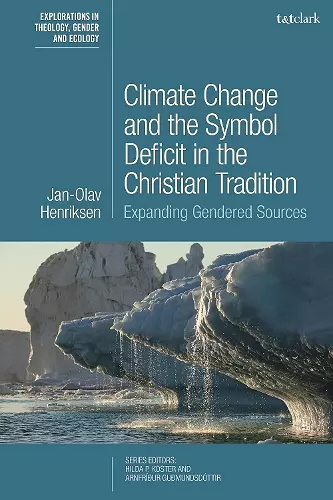Climate Change and the Symbol Deficit in the Christian Tradition
Expanding Gendered Sources
Professor Dr Jan-Olav Henriksen author
Format:Hardback
Publisher:Bloomsbury Publishing PLC
Published:24th Feb '22
Currently unavailable, and unfortunately no date known when it will be back

Explores symbols rooted in the Christian tradition that can motivate to sustained action to counter the climate crisis
Exploring how the climate crisis discloses the symbol deficit in the Christian tradition, this book argues that Christianity is rich in symbols that identify and address the failures of humans and the obstacles that prevent humans from doing well, while positive symbols that can engage people in constructive action seem underdeveloped. Henriksen examines the potential of the Christian tradition to develop symbols that can engage peoples in committed and sustained action to prevent further crisis. To do so, he argues that we need symbols that engage both intellectually and emotionally, and which enhance our perception of belonging in relationships with other humans, be it both in the present and in the future.
According to Henriksen, the deficit can only be obliterated if we can develop symbols that have some root or resonance in the Christian tradition, provide concrete and specified guidance of agency, engage people both emotionally and intellectually, and finally open up to visions for a moral agency that provide positive motivations for caring about environmental conditions as a whole.
Jan-Olav Henriksen has produced a valuable resource for the church as it struggles to bring Christian faith to bear fruitfully on the climate crisis. He offers a deep dive into the power of symbols to engender consistent action – including political action – for transformation toward ways of living that allow earth’s climate systems to flourish. This book will be invaluable in the academy and in the church.
-- Cynthia D. Moe-Lobeda, Pacific Lutheran Theological Seminary of California Lutheran University, USAThe late Ursula K Le Guin argued that if we going to think ourselves out of the current problems of climate change and globalization, we are going to need more speculative fiction writers. This means we need new symbols with which to imagine our planetary futures. This book is important because it critiques the underlying theological symbols of western style democracies and economics that are, in the era of the Anthropocence, quite simply deficient. We need new, planetary ways of imagining human-God-Earth relations that suggest we (and all things human) are emergent from the process of planetary evolution.
-- Whitney Bauman, Florida International University,ISBN: 9780567704962
Dimensions: unknown
Weight: 572g
280 pages